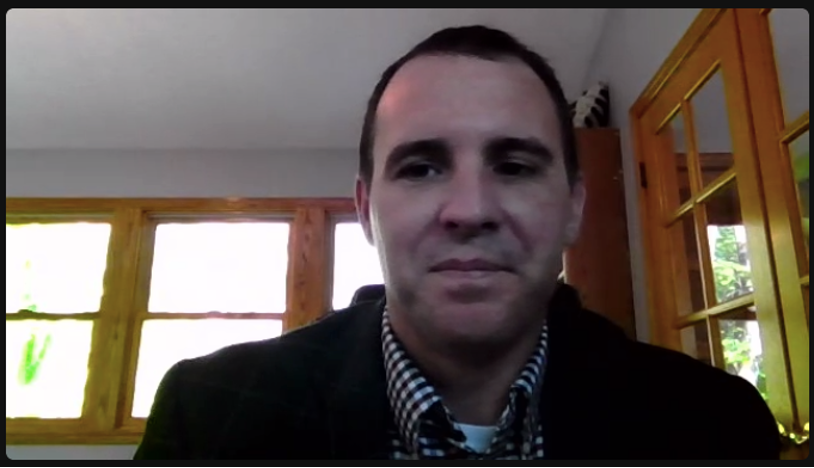The West Michigan Policy Forum recently kicked off bi-monthly legislative chats to provide an intimate opportunity to have our members listen to, glean from, and have a real-time dialogue with a changemaker. The initial chat’s guest was Michigan State Representative Thomas Albert of district 86, the Michigan House Appropriations Chair, making him the leading authority on the budget in the House. The virtual chat was led by Jase Bolger, WMPF Policy Advisor and former speaker of the Michigan House, and was attended by 26 engaged Policy Forum members.
First elected in November 2016, Albert is a member of the GOP from Lowell, Michigan with a focus on advancing the state’s foster care system, among other issues.
The chat was centered around the upcoming budget, including tax cuts, pensions, inflation, and revenue estimations. As the appropriation chair in the House, Rep. Albert provided insight into what he has heard and what he anticipates as the next steps.
“None of these federal dollars have been spent that will require backfill from future state dollars,” Rep. Albert shared at the initial onset of the conversation.
ON TAX CUTS
A billion dollars for tax cuts are built into the budget. “I think it’s a good time – every time is a good time for tax cuts – there is an argument that if we lower taxes it will drive economic growth,” Rep. Albert detailed. “There is enough fat in the budget that we will find a way to make it work.”
ON PENSIONS
“We are trying to choose the more positive option,” said Rep. Albert while explaining the House is working for all Michiganders in paying down future liabilities. “We did a supplemental to pay down debt at the local level – $900M to stabilize the local pension system.”
ON INFLATION
“Inflation is hard to tamp down,” Rep. Albert said as he provided first-hand insight. “The fire has been set, and it’s going to take increasing interest rates to tamp down inflation. That could take 12-18 months. It could take a year and a half to get inflation under control.”
ON REVENUE ESTIMATING
“The administration estimates $6B in new funds, on top of the January dollars received of $3.5B,” Rep. Albert continued.
“I’m not operating as if these numbers are accurate. If you look at the federal dollars in the economy, and if you look at the personal savings rate nationally, 7% is the mean personal savings. This number jumped to 35% with the first ‘recovery’ funds. Biden bucks moved it to 20%. $4.5T has been spent over the last six months. Now we are starting to see it manifest in state revenues. The key here is that this is an abnormality. We can’t use the data points from the last 12 months to predict the future revenues, I think we are in an abnormal time frame of where the markets are at. Worst case scenario: we have a lot of money next year. I’d rather play it safe.”Michigan’s legislative process can be confusing, and no part is more confusing for a busy business leader than the state budget process. As a WMPF member benefit, you can have direct access to members of our state’s legislature through events such as this legislative chat. If you’re interested in joining us, please contact us here.


